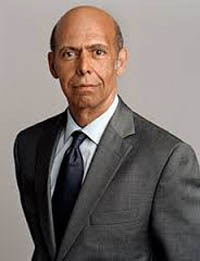Pearson Education Corp., partnered with Diverse and host institution Kentucky State University to sponsor a two-day event titled, “HBCUs: Executive Leadership Forum.” At the forum, numerous HBCU stakeholders had the opportunity to hear from leaders across the HBCU spectrum who gave their take on digital media, veteran students, student success and retention, and other topics of interest for HBCUs.
One panel, titled, “How the New Administration Will Affect HBCU Success,” featured Dr. Felecia E. Commodore, an assistant professor in educational foundations and leadership at Old Dominion University; Dr. Michael Lomax, president and CEO of the United Negro College Fund; Chuck Melley, vice president, U.S. Government Relations, Pearson; and Johnny C. Taylor Jr., president and CEO, Thurgood Marshall College Fund.
 Dr. Michael Lomax
Dr. Michael LomaxDr. Bill Cox, president and CEO of Diverse: Issues In Higher Education, moderated the panel, setting the table at the beginning of the session.
“Last November, the American people went to the polls and did what they had done 44 times before, that is to elect a president of the United States,” Cox said. “And at the end of the day, Donald Trump became our 45th president. … What does the election of Donald Trump mean for education, especially higher education and specifically HBCUs?”
For one, Taylor is encouraged by the attention HBCUs have been getting in the early days of the Trump administration. He noted that TMCF was engaged with both presidential campaigns last summer, with the Trump transition team following the election, and recently with Trump administration officials.
“I am absolutely encouraged by the fact that there are discussions being had about HBCUs. Any of us who are in this HBCU space, have to admit,” that not in 100 days, but in fewer than 30 days, numerous major media outlets — “everyone is talking about HBCUs. And so the fact of the matter is this is net, net good for us and we’ve got to hold this new administration accountable for it, but at a minimum, we are being discussed.”
Beyond that, Taylor referenced a new executive order that could be coming and be for the benefit of HBCUs.
“Because we are now part of the national discussion, the president of the United States is talking about not his executive order on the immigration ban, but on HBCUs … a huge opportunity for our community. And we’ve got to take advantage of it.”
Lomax cautioned that the talk was not enough; he is looking for the administration to act to support HBCUs.
“I think the talk is good. I think it’s important. But we have submitted very specific policy and funding recommendations.”
Lomax added that, HBCUs, and the broader higher ed community, “are inextricably tied to public policy decisions and funding decisions which are made in Washington, D.C. … When Washington, D.C., sneezes, Black folks get pneumonia. And so do HBCUs. And I think we need to recognize that we’ve got to get beyond the talk and really looking at the action.”
In a session titled, “The Future for HBCUs: Where Do We Go From Here?” Dr. James Anderson, chancellor of Fayetteville State University, cautioned that the higher ed accountability framework developed in the Obama administration could return in a new form in the Trump administration, under which there will “probably be a penalty for high student debt.” Also, “we’ll have to look and see if gainful employment will take on a new life.”
Anderson noted that the gainful employment rule implemented under the Obama administration was positive in that it curbed financial abuses among for-profit institutions.
“We better be in the discussion about that. So when we go to talk to Trump folks, we need to start that conversation about, ‘Here’s some areas that HBCUs can really be harmed in.’”
In the session, Anderson went through a number of critical areas HBCUs should look to shore up to succeed, including strengthening financial controls, identifying new revenue streams, and systematically staggering the funding of priorities on campus.
Anderson also spoke of the importance of rebuilding academic reputations. He noted that, when he came on board as chancellor of Fayetteville State, the reputation of Fayetteville’s nursing program had suffered badly given low nursing licensure exam passage rates. After a major overhaul, he noted that Fayetteville State’s nursing program is now highly rated.
“A lot of HBCUs are thriving on their historical legacy. That historical legacy is not a competitive brand in the 21st century.”
For more information, visit www.pearsoned.com/events-and-webinars/hbcus and for video coverage, visit www.facebook.com/DiverseJobs/ and click videos on the left side of the page.
David Pluviose can be reached at [email protected].


















